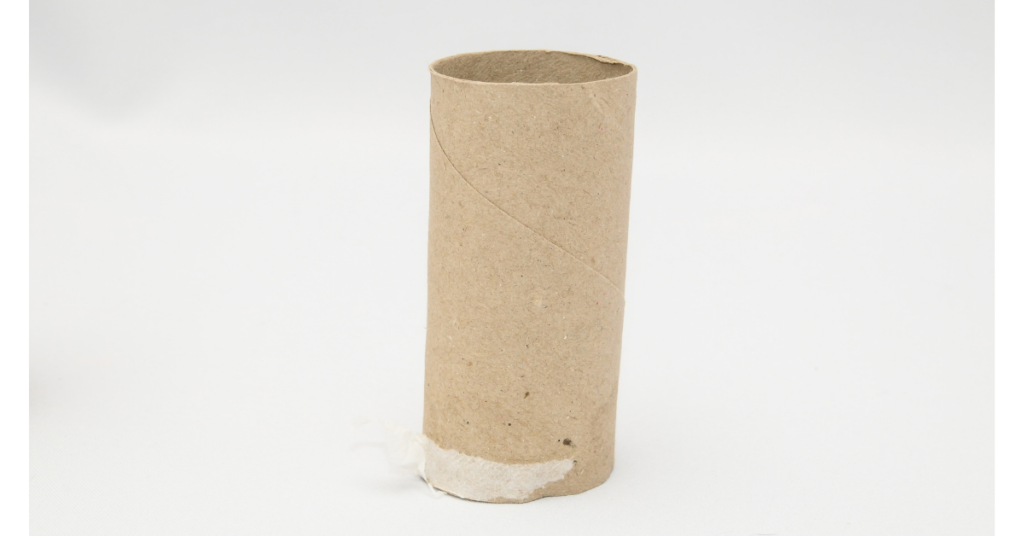What is diarrhoea?
Diarrhoea is the condition of passing abnormally watery or soft stools at least 3 times a day. Also spelled Diarrhea.
Signs and Symptoms
As well as frequent and excessive bowel movements, the sufferer may experience vomiting, sometimes accompanied by a fever, stomach cramps, abdominal pains, and thirst. For those who suffer with diarrhoea as a symptom of Irritable Bowel Syndrome (IBS), it is important to treat the associated diarrhoea as part of IBS.
Causes
Infections, both viral and bacterial, are the cause of acute diarrhoea. Infections can be caught through contaminated water, with other conditions and situations like cancer, incomplete digestion of food, food poisoning, food allergies, pancreatic disease, or the use of certain drugs, and stress leading to attacks. With Inflammatory Bowel Disease (Ulcerative Colitis and Crohn’s disease) you will experience diarrhoea. If diarrhoea continues for longer than a few days medical advice must be sought.
Lactose Intolerance. Some people don’t produce the enzyme needed to digest milk sugar, they often experience a bout of diarrhoea after consuming ice cream or milk, and for this reason they are known as lactose intolerant. The best way to deal with this intolerance is to avoid the foods altogether or consider taking a lactase supplement prior to consuming milk or milk products, as it has been proven to be of help with digestion (1).
Food allergies and sensitivities can trigger diarrhoea. Studies show that cow’s milk-based formulas brought on an attack in some infants (2) who then switched to soya-based milk and experienced no food sensitivity with the newly introduced formula (3).
Dehydration is a real problem associated with this condition especially in children, so it is essential that you seek medical advice. Food-allergy tests may indicate food intolerances that are triggering the condition or making it worse, therefore , it is worth being tested.
Tests for intestinal parasites should also be undertaken, as the presence of parasites can also cause diarrhoea.
Other medicines and additives
Some bouts of diarrhoea are not caused by infection but are triggered by consuming other supplements or foods. Large amounts of Vitamin C have been known to cause diarrhoea, so check to see if you are not taking too much of this vitamin as a daily supplement. Magnesium has been shown to bring about a bout of diarrhoea in some people, along with fruit juices and foods containing sorbitol (3,4). Avoid alcohol, caffeine (5) and spicy foods.
Complementary Approach
The following information does not constitute a prescription or recommended dose— studies have been conducted using the dosages stated and are included for your information only. The nutrients mentioned here are often recommended by Health-Care practitioners
Eat and drink plenty of fluids, especially carrot juice along with lots of water. Drinks high in protein are good for diarrhoea so consume drinks made with carob powder.
Boil half a cup of brown rice in 750 ml of water for 45 minutes, eat the rice and drink the water. Eat oat and rice bran, raw foods, and yogurt. Rice helps to form stools and also supplies essential B vitamins.
Don’t eat dairy products. The enzyme needed to digest lactose is lost for a while during an attack of diarrhoea so avoid dairy products for a few days, even if you are not lactose intolerant. It is fine to eat low-fat soured products such as yogurt (6,7). Reduce intake of foods containing gluten; this includes wheat, rye, oats, barley.
Nutritional Supplements
The following information does not constitute a prescription or recommended dose – studies have been conducted using the dosages stated and are included for your information only. The nutrients mentioned here are often recommended by healthcare practitioners.
Acidophilus replaces ‘good’ bacteria that may be lost due to diarrhoea (17). It is especially beneficial to take after a bout of diarrhoea because good bacteria get flushed out of the digestive tract leaving it vulnerable to new infections. Take 1 teaspoon in distilled water twice daily on an empty stomach.
Saccharomyces boulardii (Sb) should be taken if the diarrhoea is a result of taking antibiotics (8,9). It has also been used in studies on other forms of infectious diarrhoea (10). Travellers diarrhoea treated with Sb showed positive results (11,12).
Multivitamins should be taken as directed on the label. The body finds it hard to absorb vitamins and minerals when you have diarrhoea, so it is good to supplement with multivitamins (13).
Charcoal tablets absorb toxins in the bloodstream and colon. Take 4 tablets every hour until diarrhoea subsides. Do not take at the same time as other supplements.
Garlic capsules kill bacteria and enhance immunity. Take 2 capsules 3 times daily.
Kelp helps to replace minerals lost in loose bowel movements. Take 1,000 mg daily.
Potassium lost in a diarrhoea attack needs to be replaced. Take 99 mg per day.
Essential fatty acids help form stools. Take as directed on label.
Herbs
Psyllium Husks help make the stools more solid and in cases of non-infectious diarrhoea have been proven to alleviate symptoms (14). Take 4 capsules or 9-30 grams of the seeds daily at bedtime.
Carob (15) is commonly used in treating diarrhoea in children but can also be used for adults. Mix 15 grams of carob with jam (for taste) and take daily.
Chamomile tea reduces intestinal cramping and eases irritation and inflammation (16). Steep 2-3 grams of dried flowers in boiling water for 10 minutes, remember to cover the container with a saucer to stop the essential oils from evaporating while brewing. Drink the tea 3 or more times a day. Do not take chamomile on an ongoing basis and do not take if you are allergic to ragweed.
Other herbs that can be drunk as teas are blackberry root bark, pau d’arco, and raspberry leaf (17).
Barberry tincture can be taken 15-20 minutes before a meal. Take 2-3 ml 3 times a day.
References
1. Montes RG, Perman JA. Lactose intolerance. Postgrad Med 1991;89:175–84 [review].
2. James JM, Burks AW. Food-associated gastrointestinal disease. Curr Opin Pediatr 1996;8:471–75 [review].
3. Bowie MD, Hill ID, Mann MD. Response of severe infantile diarrhoea to soya-based feeds. S Afr Med J1988;73:343–45.
4. Hyams JS, Etienne NL, Leichtner AM, Theuer RC. Carbohydrate malabsorption following fruit juice ingestion in young children. Pediatr 1988;82:64–68.
5. Barness LA. Safety considerations with high ascorbic acid dosage. Ann NY Acad Sci 1975;258:523–28 [review].
6. Babb RR. Coffee, sugars and chronic diarrhea. Postgrad Med 1984;75:82,86–87.
7. Saavedra JM, Bauman NA, Oung I, et al. Feeding of Bifidobacterium bifidum and Streptococcus thermophilus to infants in hospital for prevention of diarrhea and shedding of rotavirus. Lancet1994;344:1046–49.
8. Colombel JF, Cortot A, Neut C, Romond C. Yoghurt with Bifidobacterium longum reduces erythromycin-induced gastrointestinal effects. Lancet 1987;ii:43 [letter].
9. Poupard JA, Hussain J, Norris RF. Biology of the bifidobacteria. Bact Rev 1973;37:136–65.
10. Pothoulakis C, Kelly CP, Joshi MA, et al. Saccharomyces boulardii inhibits Clostridium difficile toxin A binding and enterotoxicity in rat ileum. Gastroenterology 1993;104:1108–15.
11. Surzwicz CM, Elmer GW, Speelman P, et al. Prevention of antibiotic-associated diarrhea by Saccharomyces boulardii: A prospective study. Gastroenterology 1989;96:981–88.
12. Bleichner G, Blehaut H, Mentec H, Moyse D. Saccharomyces boulardii prevents diarrhea in critically ill tube-fed patients. A multicenter, randomized, double-blind placebo-controlled trial. Intensive Care Med1997;23:517–23.
13. Kollaritsch H, Holst H, Grobara P, Widermann G. Prevention of traveler’s diarrhea with Saccharomyces boulardii. Results of a placebo controlled double-blind study. Fortschr Med 1993;111:152–56 [in German].
14. Kirchelle A, Fruhwein N, Toburen D. Treatment of persistent diarrhea with S. boulardii in returning travelers. Results of a prospective study. Forstchr Med 1996;114:136–40 [in German].
15. Werbach MR. Nutritional influences on Illness, 2d ed. Tarzana, CA: Third Line Press, 1993, 256–61 [review].
16. Eherer AH, Santa Ana CA, Porter J, Fordtran JS. Effect of psyllium, calcium polycarbophil, and wheat bran on secretory diarrhea induced by phenolphthalein. Gastroenterol 1993;104:1007–12.
17. Loeb H, Vandenplas Y, et al. Tannin-rich pod for treatment of acute-onset diarrhea. J Pediatr Gastroenterol Nutr 1989;8:480–85.
18. Achterrath-Tuckerman U, Kunde R, et al. Pharmacological investigations with compounds of chamomile. V. Investigations on the spasmolytic effect of compounds of chamomile and Kamillosan® on isolated guinea pig ileum. Planta Med 1980;39:38–50.
19. Tyler VE. Herbs of Choice: The Therapeutic Use of Phytomedicinals. New York: Pharmaceutical Products Press, 1994, 51–54.


